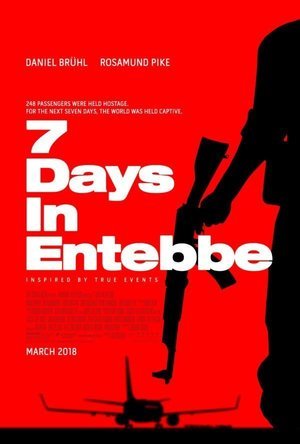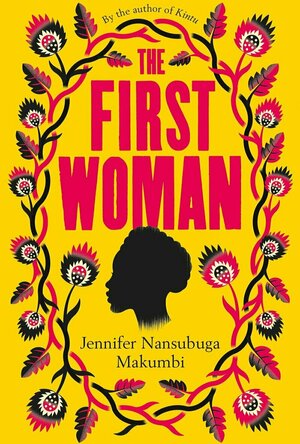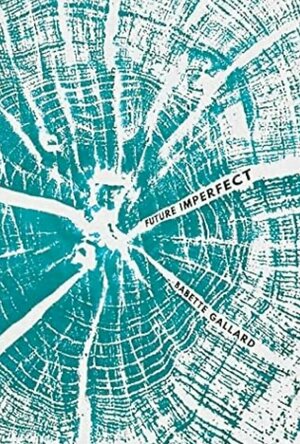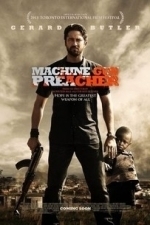Search
Search results
Blazing Minds (92 KP) rated 7 Days In Entebbe (2018) in Movies
Nov 1, 2021 (Updated Nov 3, 2021)
It’s an act of terrorism that leads to possibly one of the most daring rescue missions ever attempted in Entebbe starring Rosamund Pike, Daniel Bruhl and Eddie Marsan.
Entebbe is based on true events starting back in June 1976, the film follows the rescue attempt of 248 hostages when their commercial airline, Air France 139, is highjacked and diverted to an airport that has been long abandoned in Entebbe, Uganda, the passengers now become the very bargaining power that the terrorists need for a deadly political standoff.
Entebbe is based on true events starting back in June 1976, the film follows the rescue attempt of 248 hostages when their commercial airline, Air France 139, is highjacked and diverted to an airport that has been long abandoned in Entebbe, Uganda, the passengers now become the very bargaining power that the terrorists need for a deadly political standoff.
ClareR (6074 KP) rated Kololo Hill in Books
Apr 20, 2021
Kololo Hill is a moving story that centres around a family and their lives before, during and after the rise of Idi Amin in Uganda.
Asha is newly married to Pran, and lives with his parents, Jaya and Motichand, and his brother Vijay. The family don’t take Idi Amin’s threats seriously when he initially says that all Ugandan Asians must leave Uganda within ninety days, with nothing except for what they can carry, or face the consequences. But when the soldiers arrive and the violence starts, there can be no denying what they must do. Except they all have different passports. Motichand and Pran have Indian passports, Asha, Jaya and Vijay’s are British. And the British won’t allow them to stay together.
It isn’t just Asians whose lives are in danger. December, the family’s houseboy, is in hiding in their house, as the area he comes from is exterminated by the military.
The danger and fear were tangible when I was reading this book. It’s dangerous to even leave their houses or open their doors, and there is an ever present fear of violence and rape. Even when leaving for the airport, soldiers set up checkpoints so that they can extort as much money as possible form people before they leave.
And then there is the stark contrast between their lives in Uganda and England. Jaya, Asha and Vijay are initially given accommodation in an army barracks before they are placed in houses in (in their case) London.
They go from sunshine, warmth, comfort and colour, to cold, dreary, grey England, where the locals are hostile and accuse them of taking their jobs, or in the case of Vijay, who has part of his arm missing, won’t give him a job because of disability, even though he wants to work.
I was riveted to this book and really didn’t want to put it down. It poses the questions: what is home? Is it the place where you were born? The place where you live? Is home the people who you are with?
There were so many gasp out loud moments in this book. It deserves all the hype around it - and more.
Many thanks to Picador for providing me with an e-copy through NetGalley.
Asha is newly married to Pran, and lives with his parents, Jaya and Motichand, and his brother Vijay. The family don’t take Idi Amin’s threats seriously when he initially says that all Ugandan Asians must leave Uganda within ninety days, with nothing except for what they can carry, or face the consequences. But when the soldiers arrive and the violence starts, there can be no denying what they must do. Except they all have different passports. Motichand and Pran have Indian passports, Asha, Jaya and Vijay’s are British. And the British won’t allow them to stay together.
It isn’t just Asians whose lives are in danger. December, the family’s houseboy, is in hiding in their house, as the area he comes from is exterminated by the military.
The danger and fear were tangible when I was reading this book. It’s dangerous to even leave their houses or open their doors, and there is an ever present fear of violence and rape. Even when leaving for the airport, soldiers set up checkpoints so that they can extort as much money as possible form people before they leave.
And then there is the stark contrast between their lives in Uganda and England. Jaya, Asha and Vijay are initially given accommodation in an army barracks before they are placed in houses in (in their case) London.
They go from sunshine, warmth, comfort and colour, to cold, dreary, grey England, where the locals are hostile and accuse them of taking their jobs, or in the case of Vijay, who has part of his arm missing, won’t give him a job because of disability, even though he wants to work.
I was riveted to this book and really didn’t want to put it down. It poses the questions: what is home? Is it the place where you were born? The place where you live? Is home the people who you are with?
There were so many gasp out loud moments in this book. It deserves all the hype around it - and more.
Many thanks to Picador for providing me with an e-copy through NetGalley.
ClareR (6074 KP) rated The First Woman in Books
Aug 11, 2021
What I most like about a good book is being transported to a time and a place, and that’s exactly what The First Woman did for me. I love reading books that are set in countries and cultures that are completely different to my own, and I always hope that I’ll finish the book having learnt something new.
The First Woman taught me so much that I didn’t know about the clan system in Uganda, and about what it means to be a woman there. To be honest, it seems something of a minefield to live in a system of not just clans, but also class and ethnic groups.
Kirabo, the main character, also has to deal with the patriarchal system, colonialism and the hardships of Idi Amin’s regime.
But this is essentially a coming of age story. It’s the story of how Kirabo lives and grows up, about her longing fo the mother she has never met, about how she wants to find a place for herself in the world. It’s about mwenkanonkano - feminism - and how hard it is for Ugandan men to accept it. And finally, it’s about kweluma, and how people police, instead of support, one another. As Nsuuta says to Kirabo: “That is when oppressed people turn on each other or on themselves and bite. It is a form of relief. If you cannot bite your oppressor, you bite yourself.”
I loved this book: I empathised with Kirabo and her grandmothers friend Nsuuta. I admired that children were always first and foremost in a family and a clans mind, and I have to admit to struggling a little with the fact that women didn’t seem to have any rights over their children.
Would I recommend this book? Yes, I would. It’s a book that I’m glad came up on the Jellybooks programme, so thank you Jellybooks!
The First Woman taught me so much that I didn’t know about the clan system in Uganda, and about what it means to be a woman there. To be honest, it seems something of a minefield to live in a system of not just clans, but also class and ethnic groups.
Kirabo, the main character, also has to deal with the patriarchal system, colonialism and the hardships of Idi Amin’s regime.
But this is essentially a coming of age story. It’s the story of how Kirabo lives and grows up, about her longing fo the mother she has never met, about how she wants to find a place for herself in the world. It’s about mwenkanonkano - feminism - and how hard it is for Ugandan men to accept it. And finally, it’s about kweluma, and how people police, instead of support, one another. As Nsuuta says to Kirabo: “That is when oppressed people turn on each other or on themselves and bite. It is a form of relief. If you cannot bite your oppressor, you bite yourself.”
I loved this book: I empathised with Kirabo and her grandmothers friend Nsuuta. I admired that children were always first and foremost in a family and a clans mind, and I have to admit to struggling a little with the fact that women didn’t seem to have any rights over their children.
Would I recommend this book? Yes, I would. It’s a book that I’m glad came up on the Jellybooks programme, so thank you Jellybooks!
BankofMarquis (1832 KP) rated 7 Days In Entebbe (2018) in Movies
Mar 22, 2018
Doesn't really work
Most of us (including me), when we heard about the new film 7 DAYS IN ENTEBBE, thought to themselves "didn't they just make this film a few years ago...?" The answer is yes. A similar film to this - RAID ON ENTEBBE - was a TV movie made a few years ago - 42 years ago, to be precise. It starred Peter Finch, Martin Balsam, Jack Warden and good ol' Charles Bronson. Made a mere few months after the true events, this slapped together movie was an old-fashioned "shoot 'em up."
This film is most definitely not.
7 DAYS IN ENTEBBE tells the true story of the 1976 Air France Hijacking of (mostly) Israeli citizens that settle in Entebbe, Uganda (under the leadership of crazed dictator Idi Amin) - refusing to negotiate with terrorists, the Israeli government plan, stage and execute a daring rescue mission.
Sounds like a pretty good plot for a Charles Bronson shoot-em-up.
In this version, Director Jose Padilha (the 2014 remake of ROBOCOP) decides to focus most of his attention not on the hijacked Israeli citizens, but rather, a pair of German hijackers juxtaposed against the political infighting in Israel between Prime Minister Yitzhak Rabin and Defense Minister Shimon Peres. The Israeli governmental infighting was interesting to watch with intriguing characters and cat-and-mouse back-stabbing politics while the plight of the kidnappers was underwritten and underwhelming. Consequently, this film was "just okay".
Oh...and it had about an hour-fifteen minutes of content stretched over an hour-forty-five minutes, so to stretch things out, Padilha decided to cut back and forth between the action (what there was of it) and a modern dance recital. Clearly he was trying a metaphor of the dance punctuating the emotions and actions elsewhere. It just didn't work for me.
Neither did this film. Skip this one and check out the Charles Bronson shoot-em-up.
Letter Grade C+
5 (out of 10) stars and you can take that to the Bank(ofMarquis)
This film is most definitely not.
7 DAYS IN ENTEBBE tells the true story of the 1976 Air France Hijacking of (mostly) Israeli citizens that settle in Entebbe, Uganda (under the leadership of crazed dictator Idi Amin) - refusing to negotiate with terrorists, the Israeli government plan, stage and execute a daring rescue mission.
Sounds like a pretty good plot for a Charles Bronson shoot-em-up.
In this version, Director Jose Padilha (the 2014 remake of ROBOCOP) decides to focus most of his attention not on the hijacked Israeli citizens, but rather, a pair of German hijackers juxtaposed against the political infighting in Israel between Prime Minister Yitzhak Rabin and Defense Minister Shimon Peres. The Israeli governmental infighting was interesting to watch with intriguing characters and cat-and-mouse back-stabbing politics while the plight of the kidnappers was underwritten and underwhelming. Consequently, this film was "just okay".
Oh...and it had about an hour-fifteen minutes of content stretched over an hour-forty-five minutes, so to stretch things out, Padilha decided to cut back and forth between the action (what there was of it) and a modern dance recital. Clearly he was trying a metaphor of the dance punctuating the emotions and actions elsewhere. It just didn't work for me.
Neither did this film. Skip this one and check out the Charles Bronson shoot-em-up.
Letter Grade C+
5 (out of 10) stars and you can take that to the Bank(ofMarquis)
ClareR (6074 KP) rated Future Imperfect in Books
Dec 4, 2023
Future Imperfect is a terrifyingly plausible version of the future. Climate Change has caused displacement of people across the globe, and everyone is either trying to get home to their own countries, or trying to get to a relatively safe country. The UK is taking a hard line, and those who immigrated to Britain up to two or even three generations before, are being sent back to their ‘country of origin’ - a country that for many is an unknown.
In this atmosphere, Helen and Isha are attempting to return to the UK when their home in Arles is flooded, but as Isha is deemed to be Ugandan (her grandparents came from Uganda as refugees) only Helen can enter. Which for them is unacceptable. So Helen decides she must stay with Isha, and the two of them decide to make for Switzerland and an old friends mountain chalet.
But this is a world where everyone is constantly monitored, and as the weather and climate worsen, so do the actions of the French and Swiss governments. To be caught is to potentially be killed.
Jana, Helen and Isha’s adopted daughter, decides to follow her parents. Unlike them, she is permitted to be in France, so her journey, whilst difficult with her small daughter, is much easier.
AI is needed for every aspect of life in this world, and it’s the ideal way to track those who really don’t want to be tracked. Everything needs to be paid for using this method as well. Fortunately, Helen and Isha meet a terrorist organisation who agree to help them. They’re not the only ones to help the women. It just goes to prove that there are good people everywhere in times of need, they just need to be brave enough to step forward.
There’s a lot to think about in this story and a lot of what happens is already happening to a lesser degree (so far!): floods, fires, famine. The future this novel paints is not a good one.
Oddly, I really enjoyed this, as I do with all of these imperfect future novels. There were parts in the story where I didn’t really want to read on, because I didn’t want bad things to happen to these good people, but I’m so glad I did.
Read with The Pigeonhole.
In this atmosphere, Helen and Isha are attempting to return to the UK when their home in Arles is flooded, but as Isha is deemed to be Ugandan (her grandparents came from Uganda as refugees) only Helen can enter. Which for them is unacceptable. So Helen decides she must stay with Isha, and the two of them decide to make for Switzerland and an old friends mountain chalet.
But this is a world where everyone is constantly monitored, and as the weather and climate worsen, so do the actions of the French and Swiss governments. To be caught is to potentially be killed.
Jana, Helen and Isha’s adopted daughter, decides to follow her parents. Unlike them, she is permitted to be in France, so her journey, whilst difficult with her small daughter, is much easier.
AI is needed for every aspect of life in this world, and it’s the ideal way to track those who really don’t want to be tracked. Everything needs to be paid for using this method as well. Fortunately, Helen and Isha meet a terrorist organisation who agree to help them. They’re not the only ones to help the women. It just goes to prove that there are good people everywhere in times of need, they just need to be brave enough to step forward.
There’s a lot to think about in this story and a lot of what happens is already happening to a lesser degree (so far!): floods, fires, famine. The future this novel paints is not a good one.
Oddly, I really enjoyed this, as I do with all of these imperfect future novels. There were parts in the story where I didn’t really want to read on, because I didn’t want bad things to happen to these good people, but I’m so glad I did.
Read with The Pigeonhole.
Gareth von Kallenbach (980 KP) rated Machine Gun Preacher (2011) in Movies
Aug 7, 2019
“Machine Gun Preacher” stars Gerard Butler, Michelle Monaghan, Kathy Baker, Michael Shannon, Madeline Carrol, and is directed by Marc Foster (previously directed “The Kite Runner” , “Quantum Of Solace” , “Monsters Ball” , and “Finding Neverland”).
The movie follows the true life story of Sam Childers (Gerard Butler) a former biker gang member/drug dealer who, at a major crossroads in his life, experiences a spirtial awakening and becomes a devoted preacher and family man. One day, after hearing another preacher speak about the plight of the thousands of kidnapped and orphaned children in africa as the result of civil war, Childers makes the life changing decision to go to Africa and assist in the building and repair of homes and ‘safe zones’ for refugees that have been damaged or destroyed by the chaos engulfing the countries of Sudan and Uganda. However, upon seeing the destruction and widespread horror inflicted upon the people (in particular the children) Childers decides he cannot stand idly by and do nothing to help.
Ignoring the warnings of overwhlemed peacekeepers and aid workers in the area, Sam decides to construct an orhanage where he thinks it’s needed the most – right in the center of the most volitile area in the Sudan, which also happens to be controlled by the brutal and ultra-violent LRA (Lord’s Resistance Army). The LRA roam from village to village kidnapping children and forcing them to become soliders for the LRA or even worse. In the beginning, Childers meets with success finding as many orphaned children as he can and ferrying them to his orphanage where they find food, shelter, and medical aid. But it is not enough. After several attacks and ambushes, Childers decides he cannot let the LRA continue to sadistically destroy lives. Sam begins to lead missions deep into LRA territory, taking the fight to the enemy while struggling with the knowledge that the situation grows darker every day for the people he is trying to help – in the Sudan and for his family back home.
This movie is definately intense and NOT for the faint of heart. I have not had the chance to read Sam Childers book which the movie is supposedly based on. As far as redemption tales go, this as realistic as it gets, in the sense that sometimes in order to find the salvation or spiritual awakening you seek, you’re forced to sacrifice all and risk losing everything you hold dear in this life in order to find it. Even with the knowledge that once you arrive at the end of that journey, you may not find the awakening you so desperately fought for.
The performances in this movie were all excellent. Kudos to Gerard Butler and Michelle Monaghan in particular. The young actors who portrayed the orphans and child soldiers definately knocked it out of the park as well. Butler also produced the movie which lends more credence to the whole theory that if one of the lead actors has a hand in the behind-the-scences work of the movie, chances are it’ll be a movie worth seein’. I’d encourage you to go see it regardless of the time of day in theaters or grab it on DVD. Rated R for extreme violence throughout and some sexual content.
The movie follows the true life story of Sam Childers (Gerard Butler) a former biker gang member/drug dealer who, at a major crossroads in his life, experiences a spirtial awakening and becomes a devoted preacher and family man. One day, after hearing another preacher speak about the plight of the thousands of kidnapped and orphaned children in africa as the result of civil war, Childers makes the life changing decision to go to Africa and assist in the building and repair of homes and ‘safe zones’ for refugees that have been damaged or destroyed by the chaos engulfing the countries of Sudan and Uganda. However, upon seeing the destruction and widespread horror inflicted upon the people (in particular the children) Childers decides he cannot stand idly by and do nothing to help.
Ignoring the warnings of overwhlemed peacekeepers and aid workers in the area, Sam decides to construct an orhanage where he thinks it’s needed the most – right in the center of the most volitile area in the Sudan, which also happens to be controlled by the brutal and ultra-violent LRA (Lord’s Resistance Army). The LRA roam from village to village kidnapping children and forcing them to become soliders for the LRA or even worse. In the beginning, Childers meets with success finding as many orphaned children as he can and ferrying them to his orphanage where they find food, shelter, and medical aid. But it is not enough. After several attacks and ambushes, Childers decides he cannot let the LRA continue to sadistically destroy lives. Sam begins to lead missions deep into LRA territory, taking the fight to the enemy while struggling with the knowledge that the situation grows darker every day for the people he is trying to help – in the Sudan and for his family back home.
This movie is definately intense and NOT for the faint of heart. I have not had the chance to read Sam Childers book which the movie is supposedly based on. As far as redemption tales go, this as realistic as it gets, in the sense that sometimes in order to find the salvation or spiritual awakening you seek, you’re forced to sacrifice all and risk losing everything you hold dear in this life in order to find it. Even with the knowledge that once you arrive at the end of that journey, you may not find the awakening you so desperately fought for.
The performances in this movie were all excellent. Kudos to Gerard Butler and Michelle Monaghan in particular. The young actors who portrayed the orphans and child soldiers definately knocked it out of the park as well. Butler also produced the movie which lends more credence to the whole theory that if one of the lead actors has a hand in the behind-the-scences work of the movie, chances are it’ll be a movie worth seein’. I’d encourage you to go see it regardless of the time of day in theaters or grab it on DVD. Rated R for extreme violence throughout and some sexual content.




